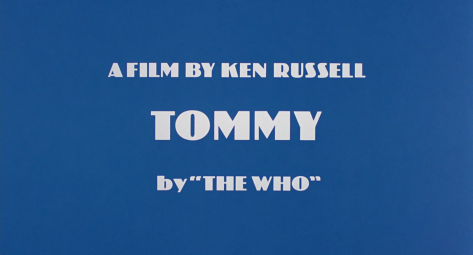
I had wanted to review the films, Pink Floyd – The Wall and Head, but I never did. Fortunately, I can just review Tommy, which is very similar to the two. This movie is on drugs. It’s filled with insane and inane visuals and performances which are filled with life, but fail at making sense. Not that sense was a priority for the film. This film is based on an album by The Who. It makes a lot more sense than this film. It seems that the loud, operatic music in the album is simply describing the situation in a larger than life manner. The film, at least insinuates, that everyone and everything is naturally over the top. Note that this is just my interpretation. As a quick sidetrack, people sometimes talk when music is playing, but often no words come out. I wondered if there was something wrong with the audio mixing. Perhaps this shows that the music is more powerful than the actors.
The performances are a mixed bag. Any of the minor characters are over the top to the extreme. Tina Turner, Elton John, and The Who’s drummer, Keith Moon, all get a song and they make it their own. However, I didn’t like any of these overly dramatic performances. The film’s attempt to one up itself is distracting. Several minutes will be dedicated to showcasing the abilities that come with writing while high. Tommy’s mother, Nora Walker, played by Ann-Margret (who needs a last name?!), is generally too over the top, but she does have subtle moments which are good. One particular highlight is her face after giving birth to Tommy.
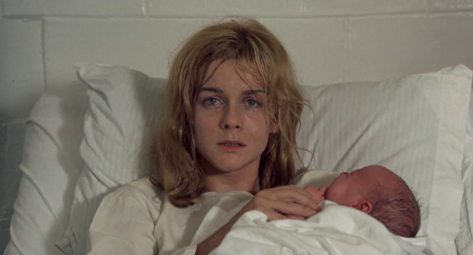
There are two performances that I rather liked. One is Oliver Reed as Frank. There often seems like there’s multiple sides to him. He has the appearance of being very friendly, but there’s a harder edge that sometimes comes out. Sadly, we never explore him to the depth I would’ve liked. This can probably be chalked up to bad writing. Speaking of which, the writing! There’s plenty of times in the film where there’s a tangent into a song that ultimately adds nothing to the overall story. So much either doesn’t make sense or is a complete waste of time. There’s a weird robot-esque suit that Tina Turner has, Tommy follows himself into a junkyard, and champagne, baked beans, and chocolate spew in alarming numbers out of a broken television. We’ll then follow into the next scene where none of it even happened the way we saw it. My best guess as to what it means is that they’re personifications of what the characters are thinking. However, it doesn’t seem to mean anything. If you cut these various scenes and moments out, you wouldn’t think something’s missing. In the champagne scene, Nora throws a bottle at her TV and all the previously mentioned start flowing out. Ideally, this would impact her character, but it doesn’t. We see a girl named Sally introduced near the end of the film, her story plays out over a song, then she’s gone. It’s the most obvious tangent and it’s tenuously related to the story of Tommy. If a lot of these scenes, especially Tina Turner’s, were portrayed with more subtlety, they’d be easier to comprehend and experience as it’d be more down to Earth. With all this imagery, the movie needs an intermission every five minutes.
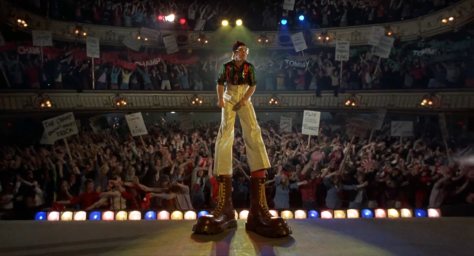
The standout of the film is Roger Daltrey, lead singer of The Who and Tommy himself. He is so incredibly good as Tommy. We see a lot of the character even when he’s not doing much. His singing is also gorgeous. I love seeing him run during the song “I’m Free” and “Listening to You”. He’s imposing and triumphant. His look matches what the film is doing with the character. The more Daltrey, the better the movie. He almost makes you forget about the confusing, hilariously bad greenscreen that I hope was intentional.
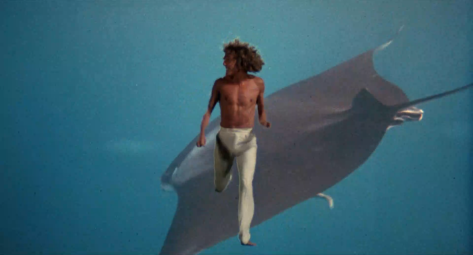
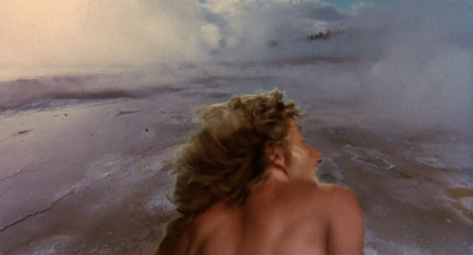
Another big positive is the excellent cinematography. We get a lot from seeing how something’s filmed. Is it filmed from a high or a low? How bright is it? The big negative was something I had to think about for a bit. I wasn’t sure what was hurting the film so much, but then I realized how bad the pacing is. It’s absurd how quickly things are brushed to the side or forgotten about. There’s no scale to how long something is, so it’s hard to get a grip on it. At one point, a character leaves, their absence hurts the other characters, then they’re back after barely any time length-wise. A decent bit of time passed in the movie.
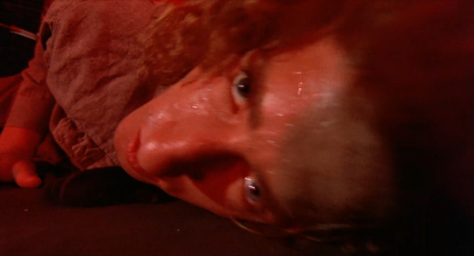
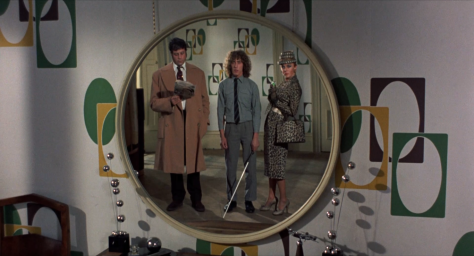
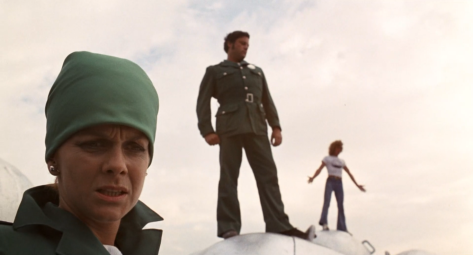
SPOILERS
For much of the film, Tommy is deaf, dumb, and blind, but not from the beginning. His mother thought Tommy’s father was dead, so she started dating another man, Frank. When Tommy’s father returned, he attacked Frank or Nora and Frank killed him. Tommy witnessed the occurrence. We get some good music and acting with Nora and Frank repeatedly saying, “You didn’t hear it. You didn’t see it.” This psychologically made him deaf, blind, and mute. I like how the sound cuts out right before the scene ends, subtle foreshadowing of Tommy’s condition. During one scene, Nora and Frank are upset that Tommy can’t go to heaven because he’s not aware of the existence of Jesus. This initially seemed like filler, but it comes back around.
A scene I really do not like is the one with Keith Moon as Tommy’s “Uncle Ernie”. Ernie seems to have some sort of secret arrangement with Frank, but this is just shown in their expressions and actions. It’s never elaborated on and it’s never portrayed so it’s understood to the audience. We never learn what Frank knows about Ernie. In the album, Ernie is singing about fiddling about with Tommy. I was horribly uncomfortable. The movie version is even worse. Ernie goofily jumps around, making uncomfortable gestures and movements while singing a song. As he sings the fiddling lines, he’s digging through a suitcase, filled with nonsensical things like papers and women’s shoes. The lights cut out and he makes disturbing noises, which probably are him molesting Tommy. He comes off more like a cartoon than a menace in how he acts, which is tonal whiplash. Admittedly, this whole scene is tonal whiplash from the rest of the film.
Tommy is eventually cured by Jack Nicholson in a subtle performance (thank goodness!). Tommy sings of being free and he wants to spread his spirit and gift to the people. Tommy is often on top of buildings and flying with a hang glider while singing of himself and his church. Frank and Nora use this to sell things to the people. Tommy, on the other end, says to spare no expense in benefiting his followers. Here we get a lot of good scenes with Daltrey. He stands tall singing. You could believe that he could convince people to follow him.
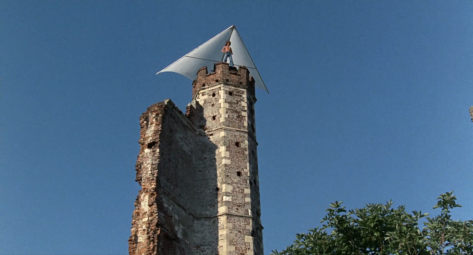
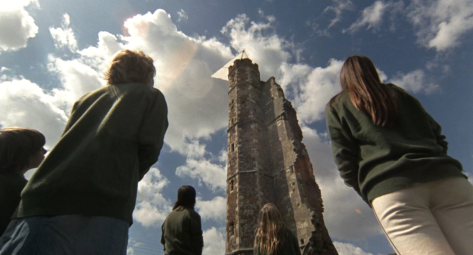
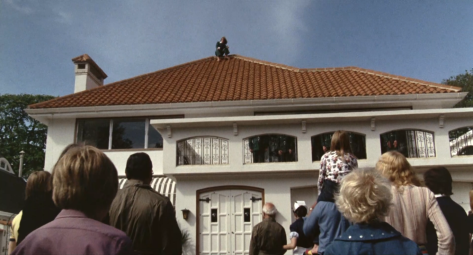
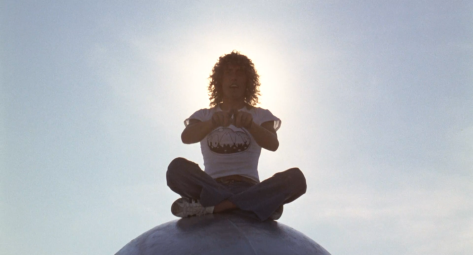
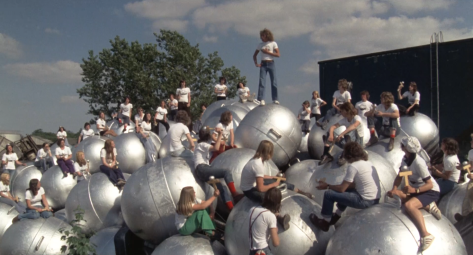
Follow they do, but not for long. The bad pacing comes around where after virtually no time, the followers come to Tommy, angry that they don’t feel better. It’s amusing to me that they, like real life people, expect quick solutions to big problems. Oh, I’m depressed and you didn’t cure me perfectly, instantly. How dare you! I don’t know if this was intentional or not, but we don’t see Tommy do anything other than feed the followers. Tommy then gives everyone little masks that prevent them from speaking, seeing, and hearing anything and he asks them to play pinball, as Tommy had done earlier in the film.
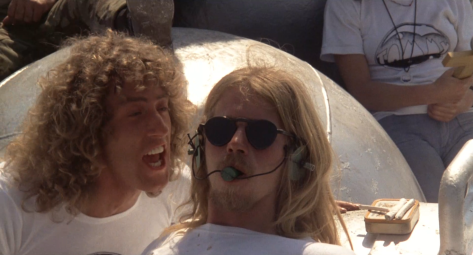
We see Tommy’s disconnect from people here. He sings to the followers, though no one can hear him. This puts into perspective what he’s thinking throughout the film. Even as an adult, he’s like a child. The followers flip flop on their views once more as briefly playing pinball didn’t satisfy them. They become reckless, murder Nora and Frank, and set fire to everything. That came out of left field. My guess is this was supposed to be symbolic, but it makes no sense in the story. My confusion continues with Tommy crying over his mother briefly, running off, and climbing a mountain. All while singing a very good song extremely well.
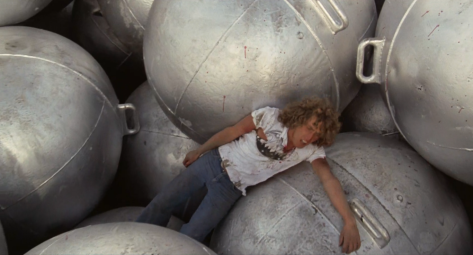
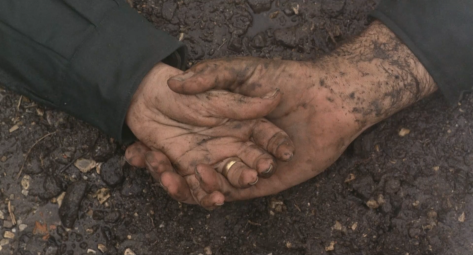
The writer and director of the film, Ken Russell, wanted to show the “spiritual journey from darkness to light” for Tommy. I didn’t get the message of that being the point. How is his parents dying enlightening for Tommy? Sure, he runs off singing, but what’s the connection there? He doesn’t seem more enlightened by the events of the ending. What is he supposed to have learned? If the film wanted to show he learned something, then keep the movie going a little more. Show him learn something about people and himself from what his followers did, instead of just closing the book. This movie’s a trip, an experience I haven’t seen before. Pink Floyd – The Wall and Head are more understandable equivalents, but they don’t reach the same level as Tommy.
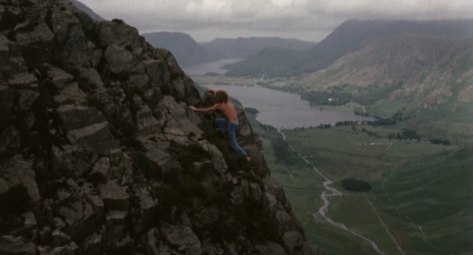
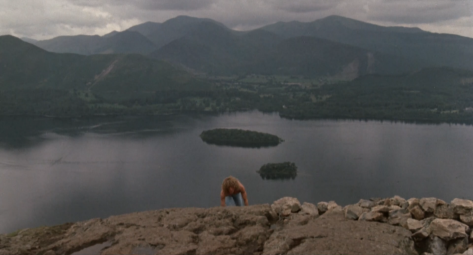

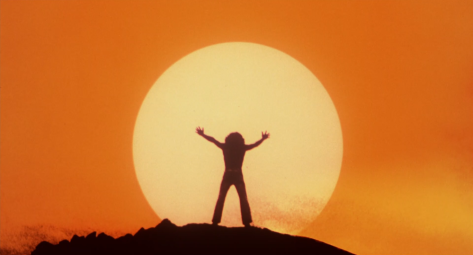
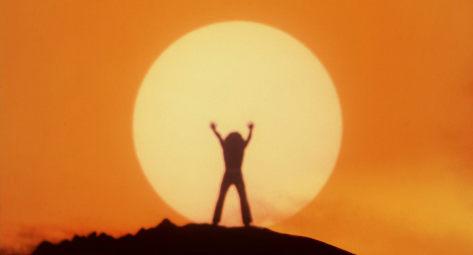
If you were a fan of this music in 75 this was really just a long music video. (We didn’t have music videos back then.)
The first few times I watched it I was dumbfounded & amazed to say the least. It stayed in the theatres a while & I just kept going back.
Pete, Roger, Eric, Tina, Elton, so many more.
Absolute 10 in my book.
LikeLiked by 1 person
I get that, there’s some good spectacle to the film.
LikeLike
No one cares if u liked this but didn’t like that, just LISTEN AND WATECH WHAT THE CREATORS ARE TRYING TO CONVEY…GET IT? THEY DIDNT MAKE THIS MOVIE TO PLEASE your every sense, nor entertain you to your satisfaction. if you watch with curious yes and listen to each deliberate scene, sound and song, you may discover it’s messages.
LikeLike